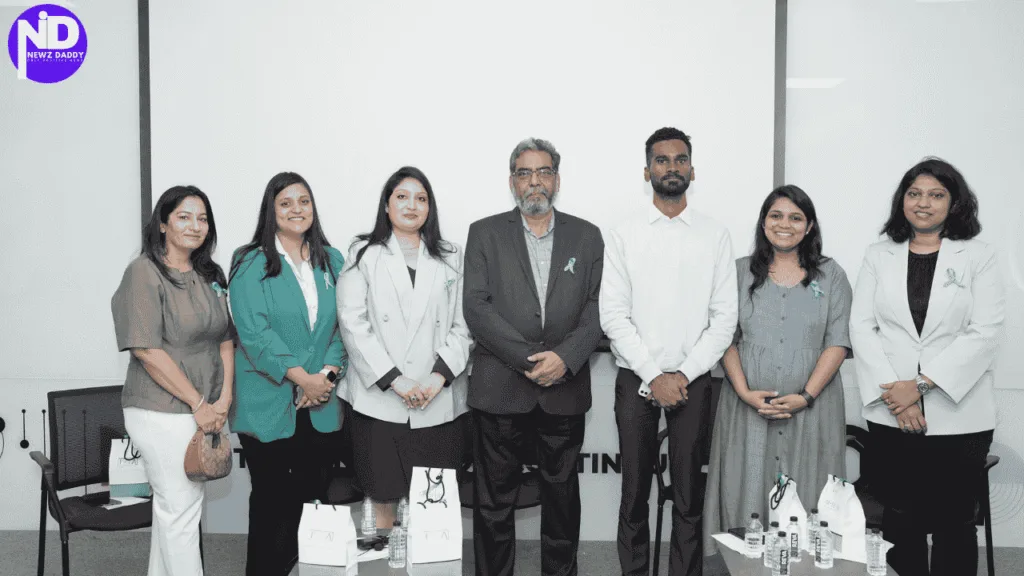M-Strip Empowers Cervical Cancer Screening At Home
Newzdaddy Health And Fitness Updates
According to recent HPV fact-sheets, India sees about 77,348 deaths annually from cervical cancer. Detection late is a big factor. Also, globally many countries struggle to reach screening goals; India, in particular, needs to scale up. The National Family Health Survey-5 data show that only 1.9% of married women aged 30-49 in India report ever having had cervical cancer screening. There is strong variation by state: some states, like Tamil Nadu, have much higher rates (over 10%), while others, such as West Bengal and Assam, have very low rates (0.2%) for married women.
More than 70 gynaecologists, oncologists, and families participated in the meet-up. Events like these often help spread awarenes, which research shows is strongly correlated with higher screening uptake. When communities discuss women’s health openly, women are more likely to get tested. Also, specialist doctors can help reduce diagnostic delay, which is one reason survival rates in India are lower.
Renowned oncologist Dr. Somesh Chandra, Dr. Shikha Bachchawat and others will provide a live demonstration of M-Strip, an indigenously developed self-sampling innovation. Self-sampling methods, when validated, tend to improve participation among women who avoid clinic-based tests due to privacy, access, or stigma issues. Studies in India and elsewhere show women are more willing to use home-based sampling if instructions are simple and privacy is ensured. Also, preserved sample technologies (dried matrix, etc.) are important for areas with poor cold chain infrastructure.
Experts emphasised the urgent need to expand screening coverage and encourage open conversations about women’s health. One review of sociocultural determinants found that lack of awareness, fears, taboos, low education, beliefs about modesty and privacy are major barriers to screening in India. Community engagement and talking openly help reduce these barriers. Peer influence and family support can also improve screening behaviour.
Vaibhav Shitole, Founder & CEO of IOTA Diagnostic, is a healthcare innovation company that aims to build accessible diagnostic tools. Their website says they are “bringing affordable healthcare, early detection closer to everyone.”Their product line includes tools for sampling, diagnostics and the new M-Strip innovation.
In India, an estimated 77,300 women die, and only 1.9% ever screened. In Gujarat, 0.6% There is a slight discrepancy in sources for state-level screening rates; one paper says Gujarat and some other states have very low rates, sometimes below 1% Also, national efforts are underway to include HPV vaccination and screening under public programs to improve these metrics.
The M-Strip is a sanitary-pad-based device, self-sampling at home, and sending to the lab. Home-based HPV tests are being explored worldwide as a way to reach under-screened populations. WHO supports self-sampling as a valid option in many settings. Also, sample stability is crucial: dried matrix methods avoid cold chain and reduce costs and spoilage. Many lab-based HPV tests need cold storage, which is difficult in rural India.
Certified labs detect high-risk and low-risk HPV genotypes; reports are confidential. HPV genotyping helps classify risk and decide follow-ups. Women with high-risk types (like HPV 16, 18) are much more likely to progress to cancer, so early detection of those is important. Confidentiality is often a big concern among women; ensuring privacy boosts participation.
Dried matrix tech preserves samples, removes cold chain issues. In many Indian states, rural areas face frequent power outages; the cold chain is costly. Technologies that allow sample preservation without refrigeration reduce logistical barriers. They allow collection kits to be sent by post or courier without special handling.
National recognition at the IIMA Healthcare Summit; India’s Health Minister noted its national contribution. Government support or acknowledgement helps in scaling distribution and possibly in subsidies or inclusion in public health programs. Also, India recently rolled out its own HPV vaccine (Cervavac), which shows that the country is making policy moves to prevent cervical cancer more aggressively.
Also Read:
Doctors say a failed cycle in fertility treatment is a step toward success
Elderly First Privilege Card Gives Seniors Health Confidence

